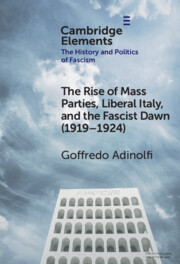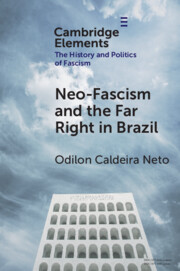The Rise of Mass Parties, Liberal Italy, and the Fascist Dawn (1919–1924)
Through an in-depth study of the electoral process, the aim of this Element is to analyse the political transformations that occurred in Italy from 1919 to 1924. After the takeover of the low chamber by the mass integration parties in 1919 - Popular and Socialist - concerns grew within the liberal camp. The argument of this Element is that the conservatives failed to adapt and remain competitive in a system characterised by universal suffrage, thereby paving the way for the rise of the fascists. The electoral path to power begins with the political elections of 1921, continues through the renewal of the municipal councils in 1922–23, and concludes with the elections of 1924 when Mussolini managed to take control of the low chamber. The Duce assumed the role of head of the nation, presenting a list of candidates-the Listone-that included members of the Fascist Party and the former politica elite.
Product details
May 2025Hardback
9781009564410
94 pages
229 × 152 × 6 mm
0.277kg
Available
Table of Contents
- Introduction
- 1. The November 1919 Elections
- 2. Local Elections and the Bologna's Clash: The Rise of Paramilitary Influence
- 3. From the 1921 Elections to Mussolini as President
- 4. The 1924 Elections
- Conclusions
- References.






